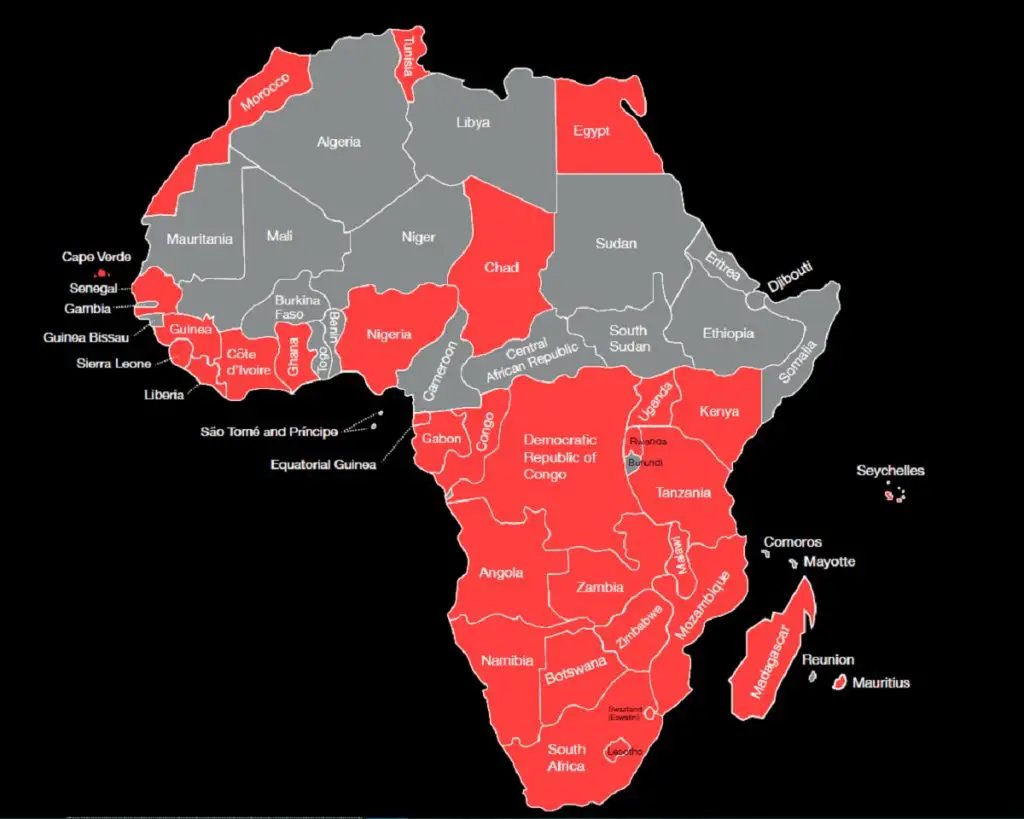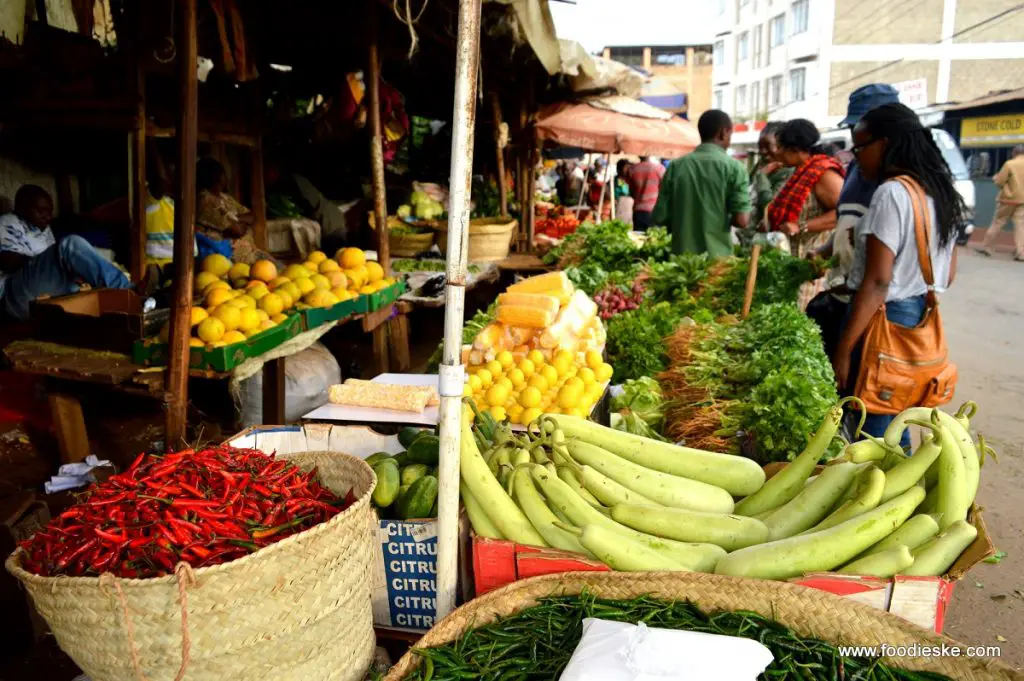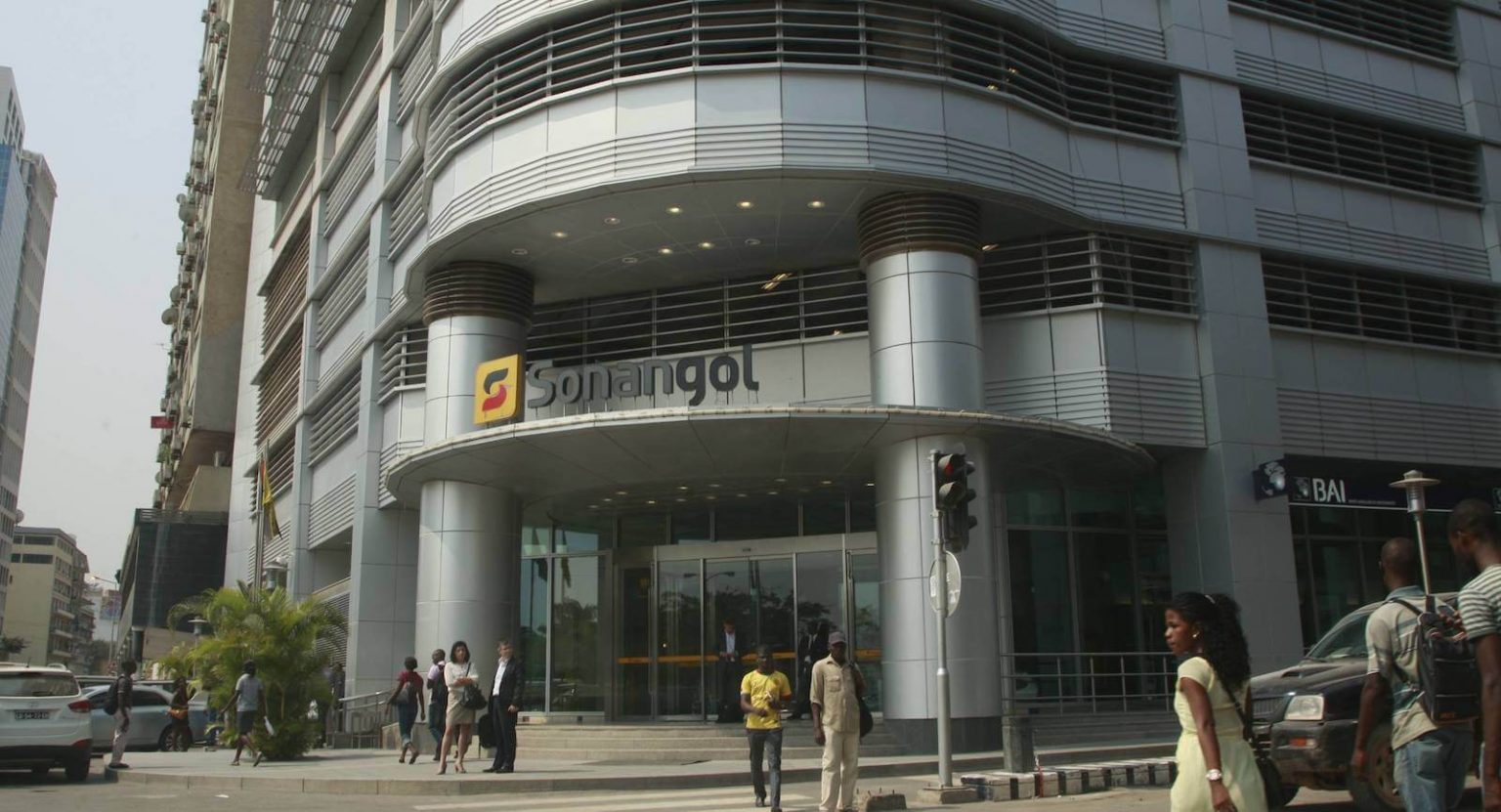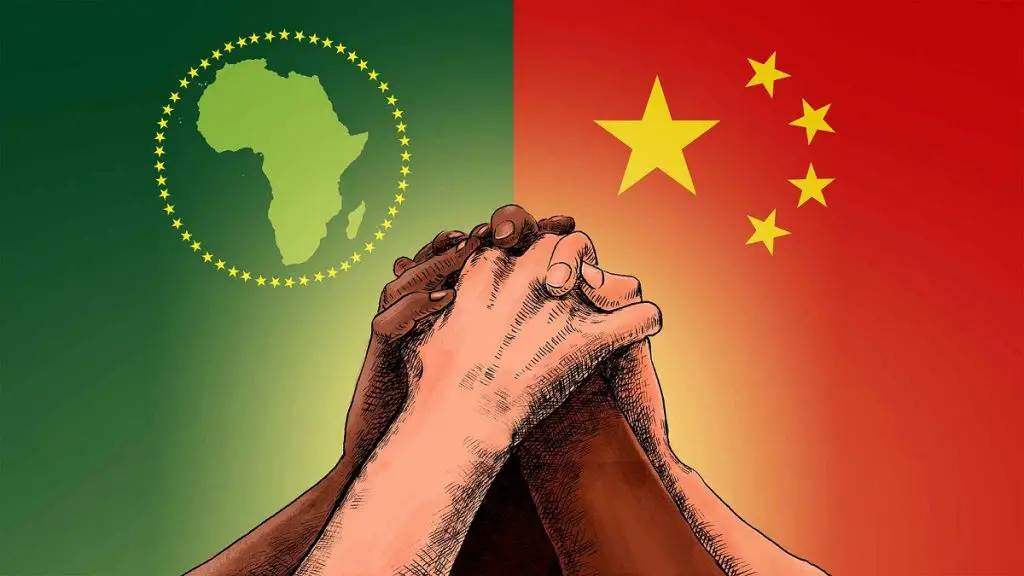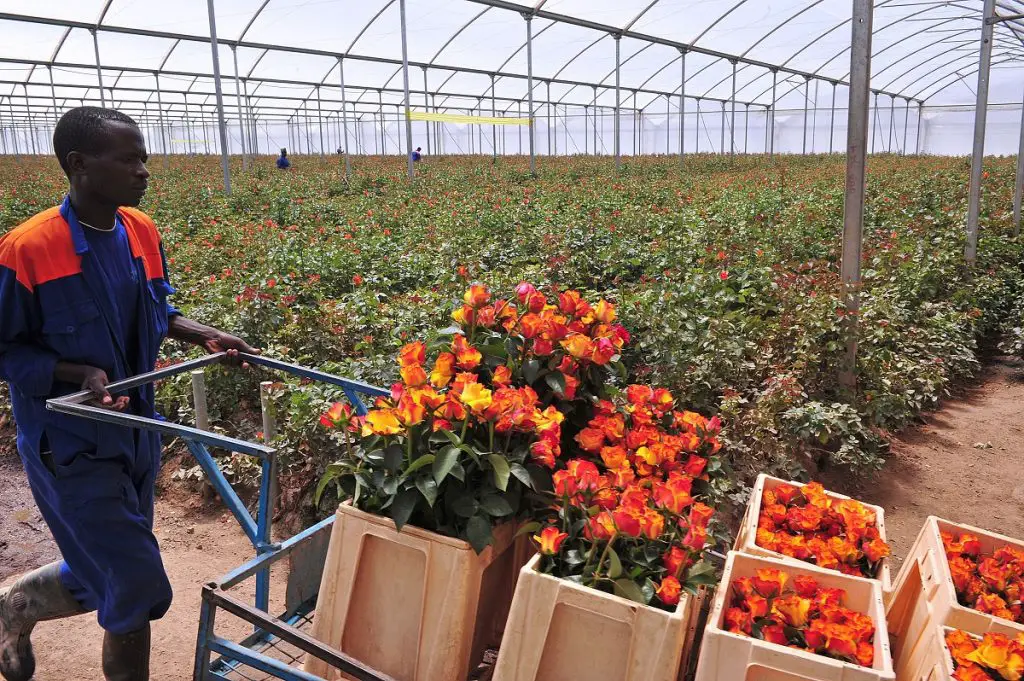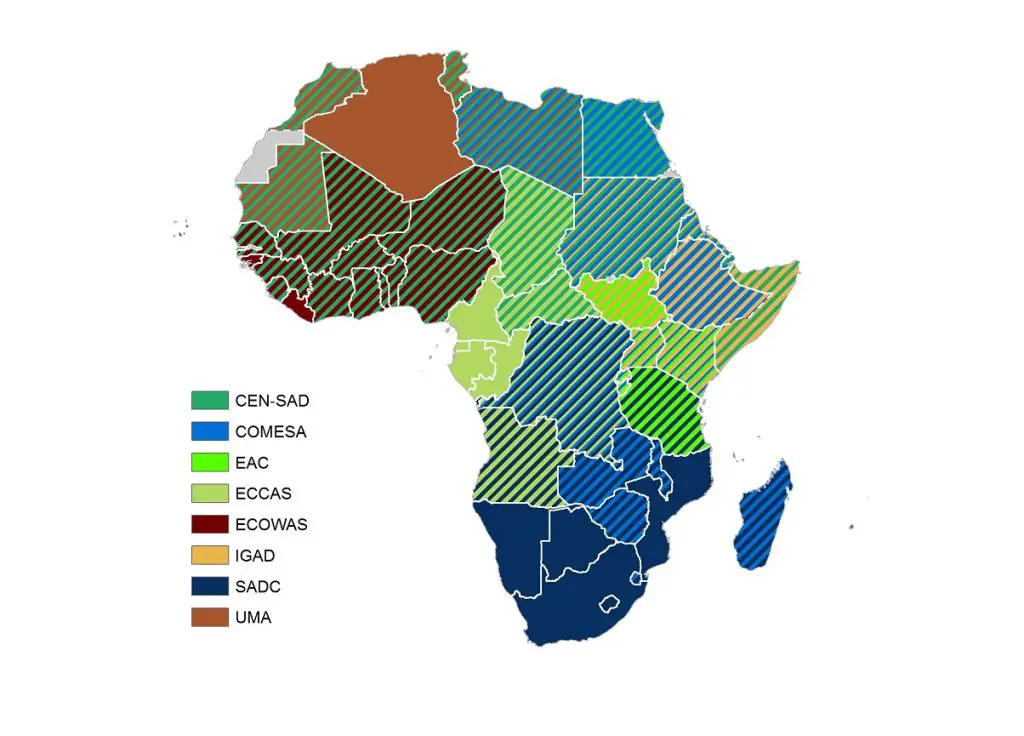- AmCham Summit kicks off, setting course for robust future of US-East Africa trade ties
- Why the UN is raising the red flag on the UK-Rwanda asylum treaty
- Portugal’s Galp Energia projects 10 billion barrels in Namibia’s new oil find
- Wärtsilä Energy offers tips on how Africa can navigate energy transition and grid reliability
- Powering Africa: Africa’s Path to Universal Electricity Access
- Global investment trends at AIM Congress 2024: a spotlight on the keynote speakers
- South Africa’s deepening investment ties in South Sudan oil industry
- Agribusiness could drive Africa’s economic prosperity
Author: Njenga Hakeenah
I have 10 years of experience in multimedia journalism and I use the skills I have gained over this time to meet and ensure goal-surpassing editorial performance. Africa is my business and development on the continent is my heartbeat. Do you have a development story that has to be told? Reach me at njenga.h@theexchange.africa and we can showcase Africa together.
The United Nations Conference on Trade and Development (UNCTAD) is calling for debt deal for developing nations in face of the Covid-19 coronavirus.
UNCTAD, in a report titled From the Great Lockdown to the Great Meltdown: Developing Country Debt in the Time of Covid-19, notes that the virus outbreak came at a time when developing economies have already been struggling with unsustainable debt burdens for many years.
Coronavirus: African leaders stuck with neglected, outdated healthcare systems
The report notes that if the challenges are huge in advanced economies, they are enormously more daunting in developing economies.
“While advanced country governments struggle to revamp administrative and regulatory frameworks and to break ideological taboos, developing countries cannot easily flatten the contagion curve by closing down their largely informal economies without facing the prospect of more people dying from starvation than from the Covid-19 illness. Moreover, even the most advanced high-income developing …
The global digital evolution has just been put into overdrive by the covid-19 coronavirus as locked-down nations are forced to accelerate the shift online, driving a massive spike in data needs.
Microsoft Teams has reached 44 million daily users and Zoom users exploded to 200 million in March from a 10 million previous maximum, as the share price rocketed 41 per cent over 2 months since February 16, 2020.
Matthew Renshaw, Chief Operating Officer of pan-African construction solutions company Profica, says that as businesses and even entire economies play rapid catch-up, the current pandemic challenge is throwing the need for local infrastructure to provide rapid, high-availability data centre services in Africa into sharp relief.
Tanzania’s coming of atomic age
“Countries across the African continent now have to leapfrog when it comes to evolving technologies and we will continue to see rapid growth in data-hungry new technologies, including the accelerated roll-out …
A WFP projection shows that some 265 million people in low and middle-income countries will be in acute food insecurity by the end of 2020. This is unless swift action is taken to ensure that food security is guaranteed.
Ironically, a majority of people who suffered acute food insecurity in 2019 were in countries affected by conflict at 77 million, climate change affected 34 million while economic crises hit 24 million people hard according to the Global Report on Food Crises.
In Africa, the Democratic Republic of the Congo, Ethiopia, South Sudan, the Sudan and Nigeria are among 10 countries globally that constituted the worst food crises in 2019.
Starvation, death threaten Horn of Africa stability
61 per cent of South Sudan’s population was in a state of food crisis while the Central African Republic, Sudan and Zimbabwe had at least 35 per cent of their populations in a state …
Investment banking fees in Sub-Saharan Africa reached an estimated US$128.2 million during the first quarter of 2020, a decline of 15 per cent from last year’s strong start.
Advisory fees earned from completed mergers and acquisitions (M&A) transactions generated US$33.5 million, down 38 per cent year-on-year, while syndicated lending fees declined 47 per cent to US$35.7 million.
The authors of the report, Refinitiv, note that Equity capital markets underwriting fees more than tripled to reach US$36.7 million, a first quarter total only exceeded twice since the company’s records began in 2000.
China’s Belt and Road Initiative, AfCFTA to anchor Africa’s economy
Bond underwriting fees increased 20 per cent to US$22.3 million, again the third-highest first quarter fee total since our records began.
Almost one-quarter of fees in the region during the first quarter of 2020 were earned from government and agency deals. Almost two-thirds of all fees were generated in …
For almost a decade now, China’s presence in Africa continues rumbling the West which has been relegated to an almost observer state by the Asian giant.
As the latest scramble for the resource-rich continent gathers pace and with the shift from aid dependence to homegrown solutions, China has been a welcome handyman in fixing problems through expensive infrastructural projects commissioned by leaders who have a huge legacy stake in them. However, these projects are raising more questions than answers from citizens and observers.
The questions arise from the fact that in real life, the economies have not been growing as much as they are depicted in papers and flamboyant GDP plans. Again, many nations are now stuck in the red since in a state of distress as loans fall due and with no means to service them.
Golden opportunities at bridge connecting 8 African countries
These African nations are having …
We are in a recession!
This is the stark reality that the world is facing and it has come sooner than many have predicted thanks to the covid-19 coronavirus. Already, the world is reeling from shock at the sheer magnitude of effect the virus has had on every aspect of life.
In addition to the lives and man-hours lost, the world will take a long time to recover from the hit. The global economy has suffered massive losses since the WHO announced the threat of the disease which was made public globally on December 31, 2019.
Already, airlines have started manifesting the effects of the coronavirus outbreak with Kenya Airways (KQ) staff taking a pay cut starting with newly appointed CEO Allan Kilavuka who will see his salary whittled down by 80 per cent from the 35 per cent he had announced earlier.
Tala’s next mission after freezing operations in
…Kenya is the barometer for what is happening or likely to take root in East Africa since the country tends to set the pace on matters development.
When it comes to land prices in East Africa, Kenya tops the list of the most expensive land rivalling even properties in some affluent areas of Johannesburg, London and New York.
In the last quarter of 2019, land prices in Kenya continued on their upward trend with properties in the suburbs increasing by 1.69 per cent over the year while satellite towns saw prices increase by 6.93 over the same period.
African economies must diversify, value add for quick recovery
In a report by Hass Consult, Kitengela which is just an hour from Nairobi city centre saw the highest land price increase recording a 10.71 per cent hike while Ongata Rongai led on a quarterly basis at 4.56 per cent.
The plush Spring …
The African economies are not diverse enough to help them navigate tough times like the one posed by the covid-19 coronavirus pandemic.
This means that when the sectors that are popular in these economies are hit, the countries suffer immensely and take longer to recover. This is no different now and with projections that the economies will slow to about 2 per cent growth continent-wide.
Despite Africa’s immense wealth of natural resources and human capital, limitations still remain since the countries have no capacity to add value to these resources. For instance, Africa should be producing steel but it does not since it has to export the raw materials to be processed elsewhere denying the continent the much-needed revenues.
Why Central Africa is dragging Africa’s growth
Speaking in Kigali, Rwanda last December, the African Union Infrastructure Envoy Raila Odinga said that Africa needs to go beyond just producing the raw …
Already, China, Russia and Pakistan are laying out plans to start conducting bilateral trade and investment while issuing bonds in local and national currencies instead of the US dollar.
The eight-member countries of the Shanghai Cooperation Organization (SCO) are to finalise a road map introducing a system of mutual settlement of national currencies.
Other SCO members include India, Kyrgyzstan, Tajikistan and Uzbekistan while observer countries Iran, Afghanistan, Belarus and Mongolia are looking to become regular members of the SCO.
With the covid-19 coronavirus pandemic, it seems that the world is realigning itself for a new way of doing business.…
With the covid-19 coronavirus global crisis affecting, Africa could be hit harder with a heavy and durable economic toll.
This hit will threaten progress and prospects, widen inequalities between and within countries and worsen current fragilities.
To survive this, the Economic Commission for Africa (ECA) says that African countries need support in preparing for the health crisis, and for the economic fallout.
Coronavirus: African leaders stuck with neglected, outdated healthcare systems
“The measures being taken in Asia, Europe and North America such as physical (social) distancing and regular hand washing will be a particular challenge for countries with limited internet connectivity, dense populations, unequal access to water and limited social safety nets,” notes ECA.
In line with the steps being taken across the globe, African countries are preparing for the worst effects of this pandemic.
To help Africa survive the crisis, ECA says that the G20 must support an immediate …





